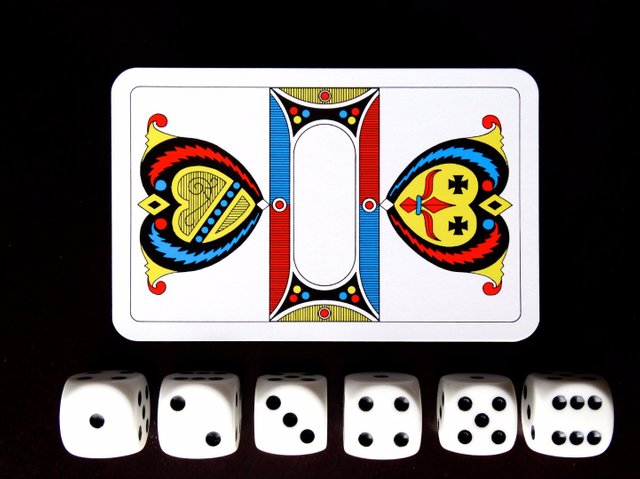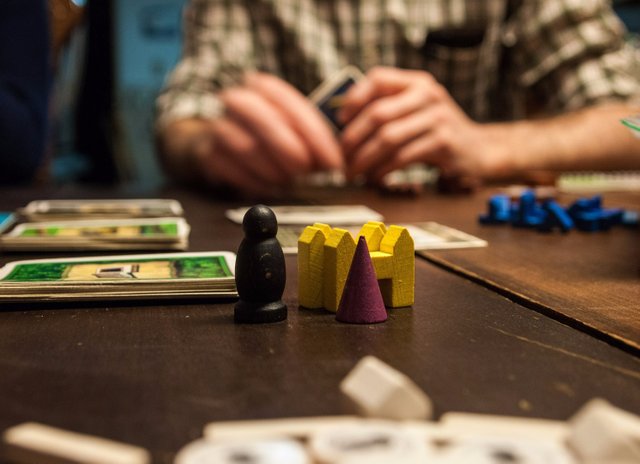How to Become a Game Designer
If you are the kind of person who likes to play games, at some point you’ve probably thought “Wouldn’t it be sweet to make games for a living?” My goal is to show you how to do just that.
I've been making games professionally for over twelve years and have learned a lot along the way. Over the next few weeks, I will cover all of the steps of game design from first idea to publication. This article is going to cover some fundamentals:
What is a Game Designer?
A game designer, like any other artist, aims to create an experience for the audience. Game designers have several features to consider that are unique to games:
- Games have players
- Games have rules
- Games are interactive
This brings us to a good starting point for a definition of a game designer:
A game designer uses the interaction of players and rules to create an experience for the audience
The audience is most often the players, but can sometimes be viewers (e.g. game shows, pro sports, etc.)
What Makes A Great Game Designer?
To be a great game designer, you must be able to predict the emotional response of your players to the rules you design. This requires a degree of empathy and the ability to understand why people play games.
A great game designer must both predict actions that players will take within a given game and understand how those actions will make players feel.
How Do I Become a Great Game Designer?
Game Designers become great mostly through practice and attention. Playing games and closely watching other players play games will over time develop a strong intuition that will make your designs better. Developing a habit of observing your players and taking in feedback (both explicit and implicit) will allow you to over time transform your initial concepts into great games.
Where Do I Start?
No matter the type of game you eventually want to make, one of the best places to start learning the art of game design is through traditional board games and card games.
The reason for this is that those games have a very low iteration cost. You can try out an idea, test it, get feedback, and repeat the cycle with very little overhead, allowing you to learn quickly what works and what doesn’t, thus allowing you to get valuable information to improve your design skills.
Playing games (even bad ones) is also valuable for learning more about game design. A great place to begin is with your favorite games. Figure out what it is about those games that attracts you. Pay attention to those moments when you notice yourself or other players having intense emotional responses (both good and bad). Take note of what lead to those emotions and think about how you could evoke them in your own designs.
The Most Important Concept In Game Design
The most important concept to understand as a game designer is what I call the Core Design Loop. This is a fundamental creative process, that every great designer uses in one form or another. Even if you think you are “not creative” (I thought I wasn't when I got started) this process will get you creating in no time. The Core Design Loop has six steps:
- Inspiration– decide what type of game and experience you will create
- Set Parameters– assess your limitations and deadlines
- Brainstorm– get your ideas down on paper
- Prototype– bring your best ideas to life
- Test– learn what works and what doesn’t
- Iterate– Use what you learned to improve the cycle next time
As a general rule, the faster you can move through the above cycle (and the more iterations you get), the better your game will be. That being said, I strongly recommend that you put a deadline on when you want to move your game to completion, as each successive iteration will have diminishing returns – don’t let the perfect be the enemy of the good! It is far better to have a good published game than a perfect one that never sees the light of day.
If there is interest, I can dig deeper into each part of the Core Design Loop and give step by step instructions on how to maximize how much you learn in each loop. Let me know in the comments if you would like to see that!
I hope readers of this will be inspired to create more awesome games. The world is a better place with more games in it, and I am happy to provide practical and concrete tips to help you make that happen!


Such a great post! I designed a game a few years ago with a friend of mine and it was one of the more rewarding experiences of my life. Watching people sit around playing (and enjoying) something you created is a fantastic feeling. Thanks for sharing!
@jg02
I remember designing a game back in college. I am sure i have the designs in a zip disk :)